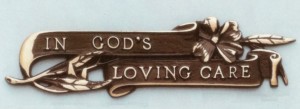In Deuteronomy 11:9-12, Moses described the Promised Land to those who were about to inherit it. In verse 9 he described it as a land flowing  with milk and honey, a land or promised blessings by God. In verse 10, he described it as a land unlike anything they have experienced before. It was a land where the residents walked in total dependence upon God. Then in verses 11 and 12 to encourage the people to live by faith rather than by sight he describes the land as the land that’s under God’s care. These verses say, “But the land that you are going over to possess is a land of hills and valleys, which drinks water by the rain from heaven, a land that the LORD your God cares for. The eyes of the LORD your God are always upon it, from the beginning of the year to the end of the year.”
with milk and honey, a land or promised blessings by God. In verse 10, he described it as a land unlike anything they have experienced before. It was a land where the residents walked in total dependence upon God. Then in verses 11 and 12 to encourage the people to live by faith rather than by sight he describes the land as the land that’s under God’s care. These verses say, “But the land that you are going over to possess is a land of hills and valleys, which drinks water by the rain from heaven, a land that the LORD your God cares for. The eyes of the LORD your God are always upon it, from the beginning of the year to the end of the year.”
The Bible is full of references to the God “who sees” (Gen. 16:13). Job says (Job 10:4) that God sees everything that man sees. The Psalmist asks “He who formed the eye, does he not see? (Ps. 94:9). And many more references: the eyes of the Lord range through the earth (2 Chr. 16:9; Zech. 4:10); the Lord looks down on heaven and earth (Ps. 113:6); the Lord looks down from heaven (Ps. 33:13; Ps. 102:19); the eyes of the Lord keep watch over knowledge (Prov. 22:12); God looks to the ends of the earth and sees everything (Job 28:24).1 Peter 3: 12 says “For the eyes of the LORD are on the righteous, And His ears are open to their prayers; But the face of the LORD is against those who do evil.” Christians need not fear the cruelty of their enemies or the catastrophes of nature because God watches over them. When the Bible attributes eyes and ears to God, we call this an anthropomorphism. It attributes human physical characteristics to God that help us understand a spiritual truth. The profound truth here is that God sees everything and that he watches over us and will take care of us.
Both the Old Testament Psalm (55:2), and the New Testament (James 5:7) exhort us to cast our cares on the Lord because He cares for us. Our confidence rests upon the truth that we know God sees all our problems, troubles, and weaknesses, and yet genuinely cares for us. It’s often easier to truth God for salvation and eternal life than to trust Him to tenderly care for us in our daily lives. One writer put it this way, “We need not worry no matter how great the task, how difficult the test, how fierce the danger, or how great the need. We can just ‘lean upon His breast’ and be covered by ‘His wings of love.’” The old hymn says, “God will take care of you, thru ev’ry day, o’er all the way; He will take care of you; God will take care of you.”